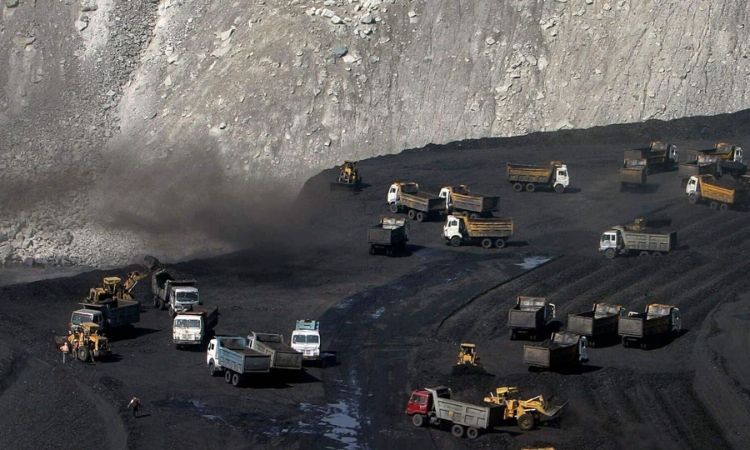Introduction:
Protests have erupted against the expansion plans for the Gevra coal mine in the eastern province of Chhattisgarh, posing challenges to Coal India Ltd’s ambitions to increase its annual capacity to 70 million tons.

The proposed expansion would establish Gevra as the world’s largest coal mining operation. However, the residents in the vicinity of the mine have raised concerns regarding air pollution, groundwater depletion, and fair compensation for land acquisition. This article delves into the details of the protests and the potential implications they may have on the expansion plans.
Rising Power Demand and India’s Energy Security Focus:
India, facing a surge in power demand, has prioritized energy security and aims to boost coal production to meet approximately 70% of its electricity generation needs. Coal continues to be a dominant source of fuel for power generation so, Production of Coal is an emergency. In line with this objective, Coal India Ltd. has sought to expand its operations, including the Gevra coal mine, to ramp up coal production.
Protesters’ Concerns and Opposition:
The residents living in the vicinity of the Gevra coal mine have expressed various concerns about the expansion plans. The primary issues raised include:
Air Pollution: Local communities are worried about the potential increase in air pollution resulting from the expanded mining activities. The extraction and combustion of coal are known to contribute significantly to air pollution, which has adverse effects on human health and the environment.
Groundwater Depletion: The impact on groundwater levels is another major concern voiced by the protesters. They fear that the mining operations may lead to the depletion of groundwater resources, which could have severe consequences for agriculture, drinking water supplies, and the overall ecological balance of the region.
Compensation for Land Acquisition: The residents demand fair compensation for the land acquired by Coal India Ltd. for the expansion. They seek adequate financial compensation and alternative livelihood opportunities for those affected by the project.
Coal India’s Response and Mitigation Efforts:
Coal India and its subsidiary, South Eastern Coalfields Ltd., which operates the Gevra mine, have made efforts to address the concerns raised by the local communities. A spokesperson from South Eastern Coalfields Ltd. emphasized that the company has taken substantial measures to tackle pollution associated with mining activities. They also claimed that studies have shown no adverse impact on groundwater levels in the Korba district, where the mine is located.
In terms of compensation, Coal India offered 700 jobs in exchange for the land last year, marking the highest number of job placements in a decade. The company has also increased financial compensation for land acquisition, aiming to provide a more equitable resolution for the affected individuals.
Public Hearing and Its Significance:
In an attempt to engage with the concerns of the local communities, a public hearing was conducted at the Gevra site. Such hearings provide a platform for residents to voice their opinions and grievances, enabling stakeholders to assess the social and environmental impact of the proposed project. The public hearing serves as an important step in the decision-making process, allowing authorities to evaluate the viability of the expansion plans while considering the concerns raised by the affected communities.
Potential Implications for Coal India’s Expansion Plans:
The protests against the Gevra mine expansion pose significant challenges to Coal India’s ambition to increase its annual capacity to 70 million tons. The opposition from local communities can potentially complicate the approval process required for the expansion project. Concerns regarding environmental impact, air pollution, groundwater depletion, and fair compensation must be addressed adequately to alleviate the grievances of the affected residents.
Conclusion:
The protests against the Gevra coal mine expansion highlight the increasing conflicts between India’s drive for energy security and the concerns of local communities affected by such projects. Balancing the need for increased coal production with environmental and social considerations remains a significant challenge. Coal India Ltd. must engage in meaningful dialogue with the protesters and address their concerns to ensure a sustainable and equitable approach to coal mining in Chhattisgarh.














